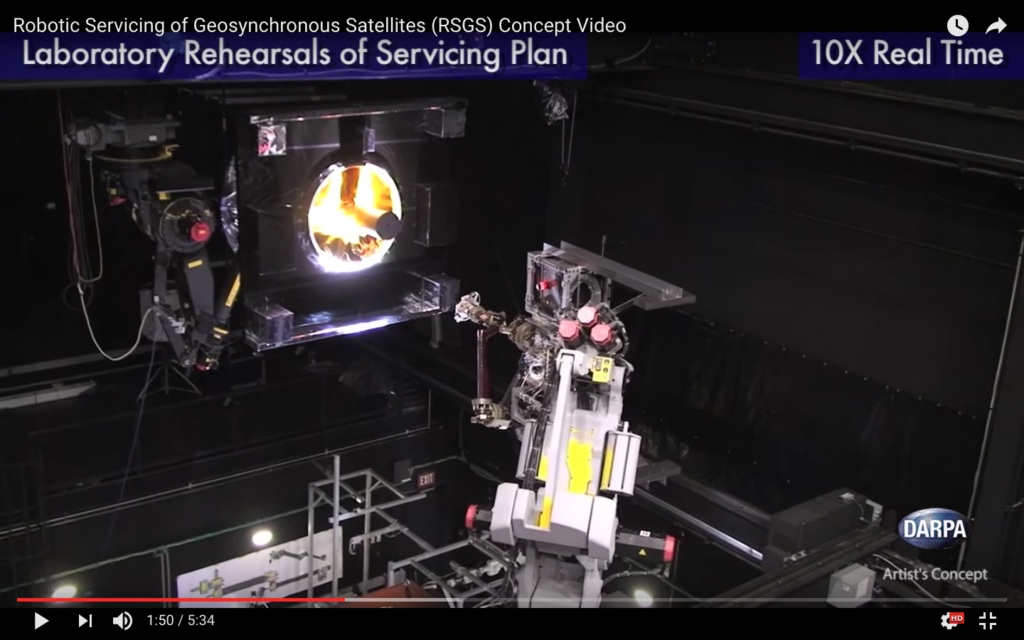Court Throws Out Orbital Suit Against DARPA
Posted on

Robotic Servicing of Geosynchronous Satellites (RSGS) Concept
A Virginia federal court has thrown out a suit by Orbital ATK, basically arguing that while the company’s arguments might have some merits, the court did not have the legal right to cancel a DARPA program.
Orbital ATK is building a system it believes competes directly with the DARPA program, known as Robotic Servicing of Geosynchronous Satellites. That may be a violation of the US National Space Policy, which requires “that the government not build or buy systems” that “preclude, discourage or compete” with commercial systems.
The technology — whether DARPA’s or Orbital’s — would offer great benefits to both the National Reconnaissance Office, operator of our spy satellites, as well as international commercial satellite companies such as Intelsat. Why? Because using RSGS, satellites in geosynchronous orbit — 22,000 miles up — could be checked for problems, repaired, and even get new sensors installed. Today, if something goes wrong, it can be very difficult to tell the cause, let alone fix it.
Orbital filed the lawsuit in the U.S. District Court for the Eastern District of Virginia “in response to DARPA’s apparent decision to continue pursuing a program that violates long-standing principles of the U.S. National Space Policy, wastes taxpayer funds, and benefits a foreign-owned corporation.”
Orbital ATK has invested at least $100 million in what it says is a similar system, the Orbital Mission Extension Vehicle (MEV). In April last year, Orbital announced that the commercial satellite giant Intelsat would buy the first of the system. “Orbital ATK will continue to pursue all available options to oppose DARPA from moving forward with this illegal and wasteful use of U.S. taxpayer dollars,” the company said in a statement at the time.
The Office of Secretary of Defense also launched a review of the DARPA program, which did not require a legal judgement. That review was finished in the spring. The court noted in its ruling that the presidential space policy does not have the force of law.
DARPA issued a standard statement in reaction to the court’s decision, saying it looks “forward to continuing our collaboration with public and private entities in pursuit of our ambitious goal of robotic satellite servicing on orbit.”
Kudos to my colleague Peter De Selding for breaking the story all the way from Paris about seven hours before I heard from DARPA!
Subscribe to our newsletter
Promotions, new products and sales. Directly to your inbox.
